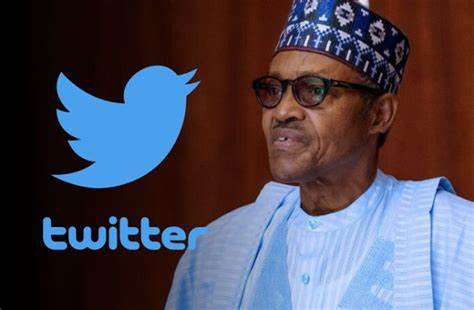Buhari and Twitter Ban: A Move to Correct Giant Tech Arrogance, By Ya’u Mukhtar
Read Also:
POLITICS DIGEST – The Nigerian Constitution plus other international treaties and declarations have recognized and guaranteed freedom of speech and press expression as fundamental human right. These rights are non-negotiable and are deemed to be enjoyed by every human being.
Over the years, technological advancement has increased media density beyond the radio, televisions and newspapers that we are conversant with. Nowadays, micro-blogging platforms such as Facebook, WhatsApp, Twitter, Instagram, Telegram et al. are now the most alternative avenue for mining and disseminating news and information in a technologically driven society.
However, their main set-back is lack of proper regulatory mechanism, thus raising concern for upholding ethical standard in the course of operations.
Recall that, two days after Twitter deleted President Buhari’s tweet in which he promised to treat the proscribed Indigenous People of Biafra (IPOB) Militants who causes havoc in south eastern region of the country in the language they understand, the Presidency swiftly responded by banning operation of Twitter in Nigeria.
The government cited national security interest as the reason behind taking the critical decision and specifically laments the persistence use of Twitter for activities capable of undermining Nigeria’s corporate existence.
The Constitution of Nigeria and other international treaties, declarations and conventions to which Nigeria is a signatory recognised the right of the press as fundamental to the existence of democracy, but have also provided the power of restriction and derogation from those rights under certain circumstances.
firstly, section 39(1) of the Nigerian Constitution stated that; “every person shall be entitled to freedom of expression, including freedom to hold opinions and to receive and impart ideas and information without interference” However, section 45 of the same Constitution provides restriction and derogation from those rights of speech and expression especially “in the interest of defence, public safety, public order, public morality or public health” or “for the purpose of protecting the rights and freedom or other persons”.
Similarly, in the African Charter on Human and People’s Rights (ACHR), section 29 states that: “Every individual shall have the right to receive information without discrimination as well as the right to disseminate opinion within the law.”
More so, Article 19 of the United Nations’ Universal Declaration of Human Rights (UDHR) provides that “Everyone has the right to freedom of opinion and expression; this right includes freedom to hold opinions without interference and to seek, receive and impart information and ideas through any media and regardless of frontiers”. Alternatively, section 29 of that same declaration also stated that these rights must be exercised within the limit of the law. It states that “in the exercise of his rights and freedoms, every one shall be subject only to such limitation as are determined by law solely for the purpose of securing due recognition and respect for the rights and freedoms of others and of meeting the just requirements of morality, public order and the general welfare in a democratic society.”
So, considering the above mentioned laws, declarations and treaties, everybody shall have the right to acquire information and share his opinion, but such should be done in accordance with ethical standards.
To that effect, Nigerian Government is just exercising her constitutional right by banning Twitter especially when issues regarding how fake news circulated on the platform has helped a lot in causing unrest in the country during the last year #ENDSARS protest in which the Twitter CEO tweeted in support of the movement.
Apart from that, Nnamdi Kanu had been using Twitter to circulate vicious comments that undermine the national security of Nigeria and to that effect, the Federal Government had severally complained to Twitter to checkmate his activities on that regard, but the strong-headed Giant Tech did never care to give listening ears to these pleads.
Furthermore, about 40millions Nigerians have active Twitter accounts, more than Ghana’s entire population of 32million. Instead, Twitter stationed their Africa’s Regional Headquarter at Ghana rather than Nigeria where they generate more revenue than in any other African countries.
Worse still, Twitter are always on forerun in disseminating information capable of causing uproar in Nigeria, which is not the same way it does to America when Donald Trump tweeted a message that led to invasion and attack of Congress Building in the United State Capitol. So why didn’t they apply the same sanction to Nnamdi Kanu whenever he tweeted a message capable of burning Nigeria into ashes? Is he special to them or are they justifying his cause of action by keeping mute without taking any action?
Nevertheless, thanks to this recent development, as the time is ripe for African countries to rise against the Tyranny of foreign Big Techs as Nigeria is now on the forerun leading the way. Since the self-regulatory mechanism of these micro-blogging platforms is ineffective, then the only option available is to have statutory regulatory mechanism to checkmate their operations to suit the code of ethical standard.
Lastly, the Presidency should mend fences with Twitter in the event that they register and a license being issued for their operation. However, to our teeming IT savvy, this ban should serve as an opportunity to prove your worthiness to the country by creating alternative platforms capable of reaching out to the wider world.
Ya’u Mukhtar
[email protected]

















